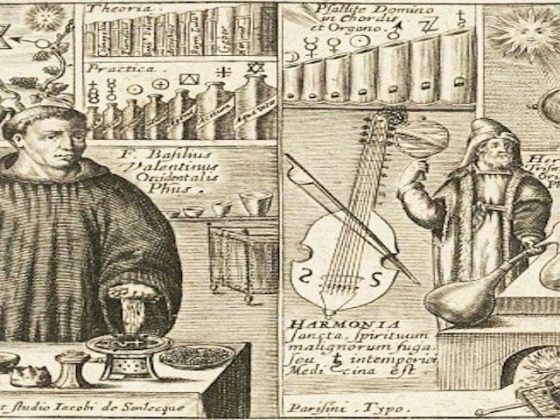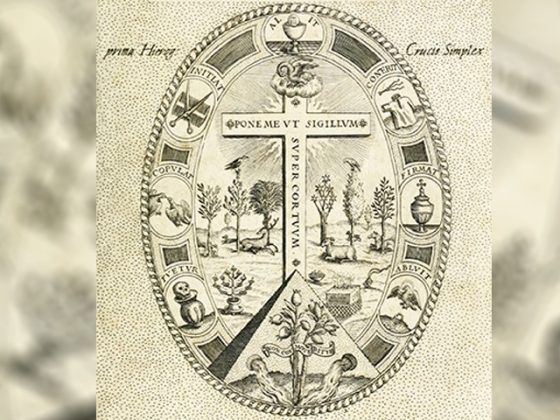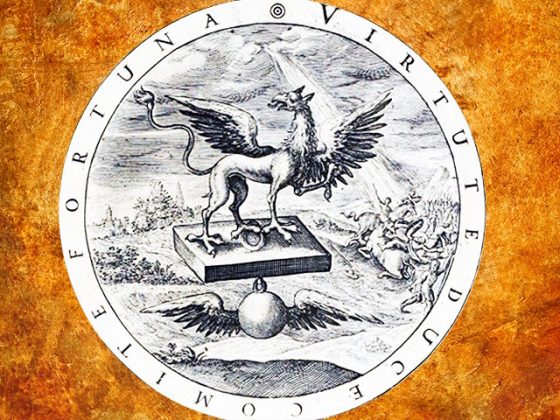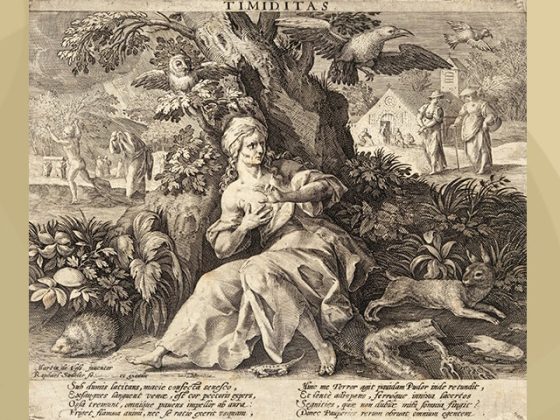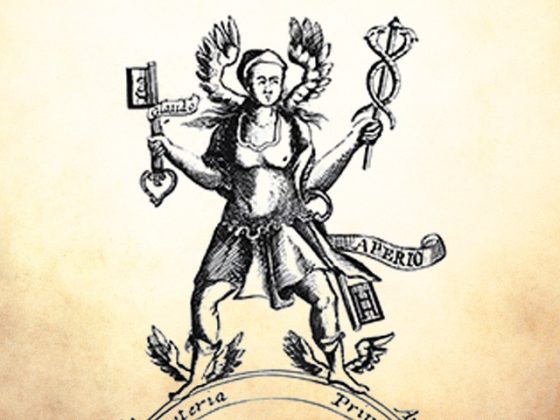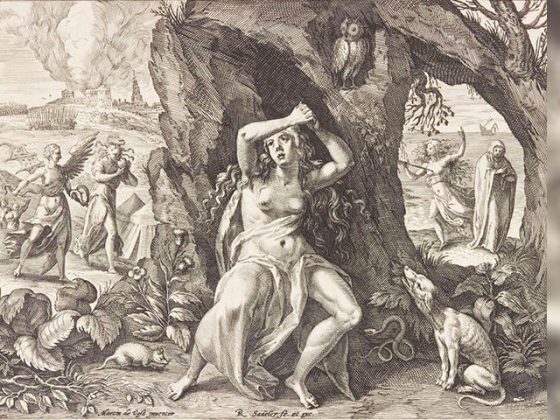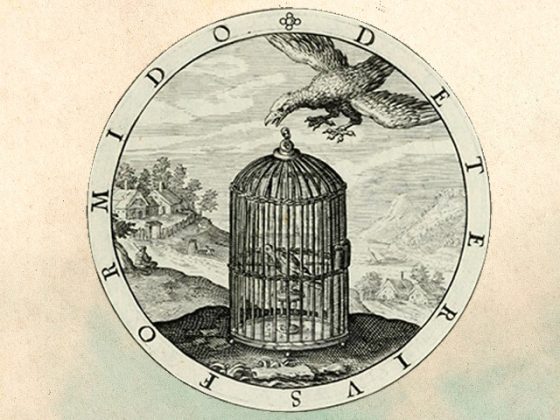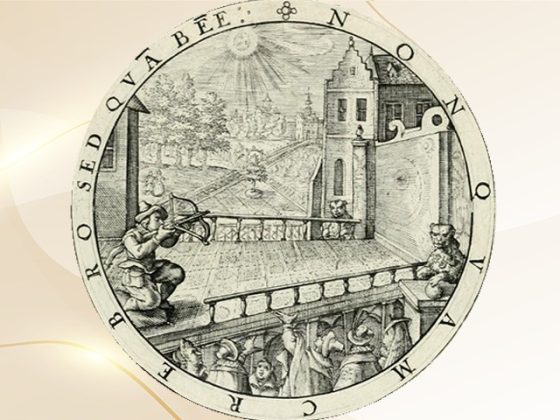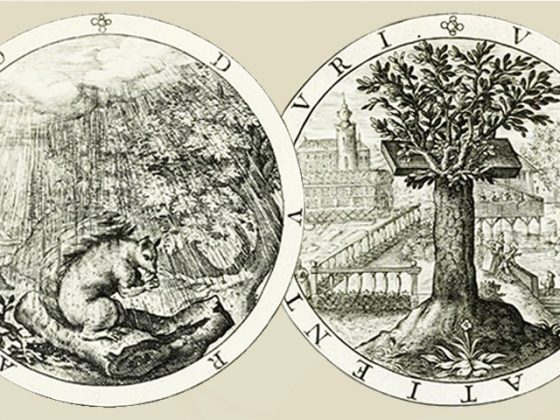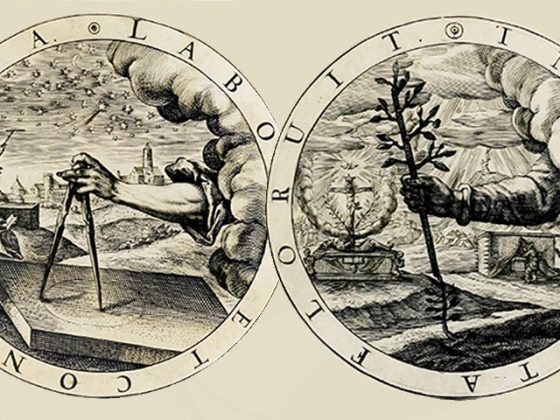The cover depicts Basil Valentine and Hermes Trismegistus with alchemical and musical instruments; twelve woodcuts within the text that show alembics and various alchemical tools; an engraving by Senlecque with seven emblematic medallions and at the end an alchemical drawing in the form of a shield.
“Symbola divina & humana pontificum, imperatorum, regum” (Divine and human symbols of pontiffs, emperors and kings)
I am sending you an image that appears in the book Symbola divina & humana pontificum, imperatorum, regum ─’DIVINE AND HUMAN SYMBOLS OF PONTIFFS, EMPERORS AND KINGS’─ published in 1601 in Prague.
We must mortify and decompose this earth, which amounts to killing the griffin and fishing the fish, or separating the fire from the earth, the subtle from the gross, “gently, with great skill and prudence”, as Hermes teaches in his Emerald Tablet.
“Timiditas” (Fear)
We could conclude the following about the two couples mentioned above: terror makes us flee, but modesty contains that impetus of fear, indolence limits action, but it has to stop when poverty, which is a consequence of indolence itself, forces us to act.
This engraving, patient reader, brings to mind one of the most precious symbols of Alchemy; we refer to the Mercury of the sages.
“Tristitia” (Sadness)
This engraving belongs to a four-part series on negative human traits. The series was engraved and published in 1592 in Cologne ─Germany.
“Deterivs formido” (I fear the worst)
On this occasion, I am sending you the eighty-fourth emblem of the book Nucleus emblematum selectissimorum, ‘The Nucleus of the Most Select Emblems’, with the texts in Latin and Old French and a possible translation.
“Non qvam crebro, sed qvam bene” (Not how often, but how well)
Os envío el vigésimo quinto emblema del libro Nucleus emblematum selectissimorum, ‘el núcleo de los emblemas más selectos’.
“DVRABO” (I will resist) and “VICTRIX PATIENTIA DVRI” (Patience is victorious in difficulties)
I send you the twenty-sixth and twenty-eighth of a book of poems written by the same German poet Gabriel Rollenhagen. The book is entitled Nucleus emblematum selectissimorum, ‘The Nucleus of the Most Select Emblems’.
I am sending you two emblems or engravings, number 9 and number 59, both from the book Selectorum emblematum – ‘Selected Emblems’ – written by the German poet Gabriel Rollenhagen.


